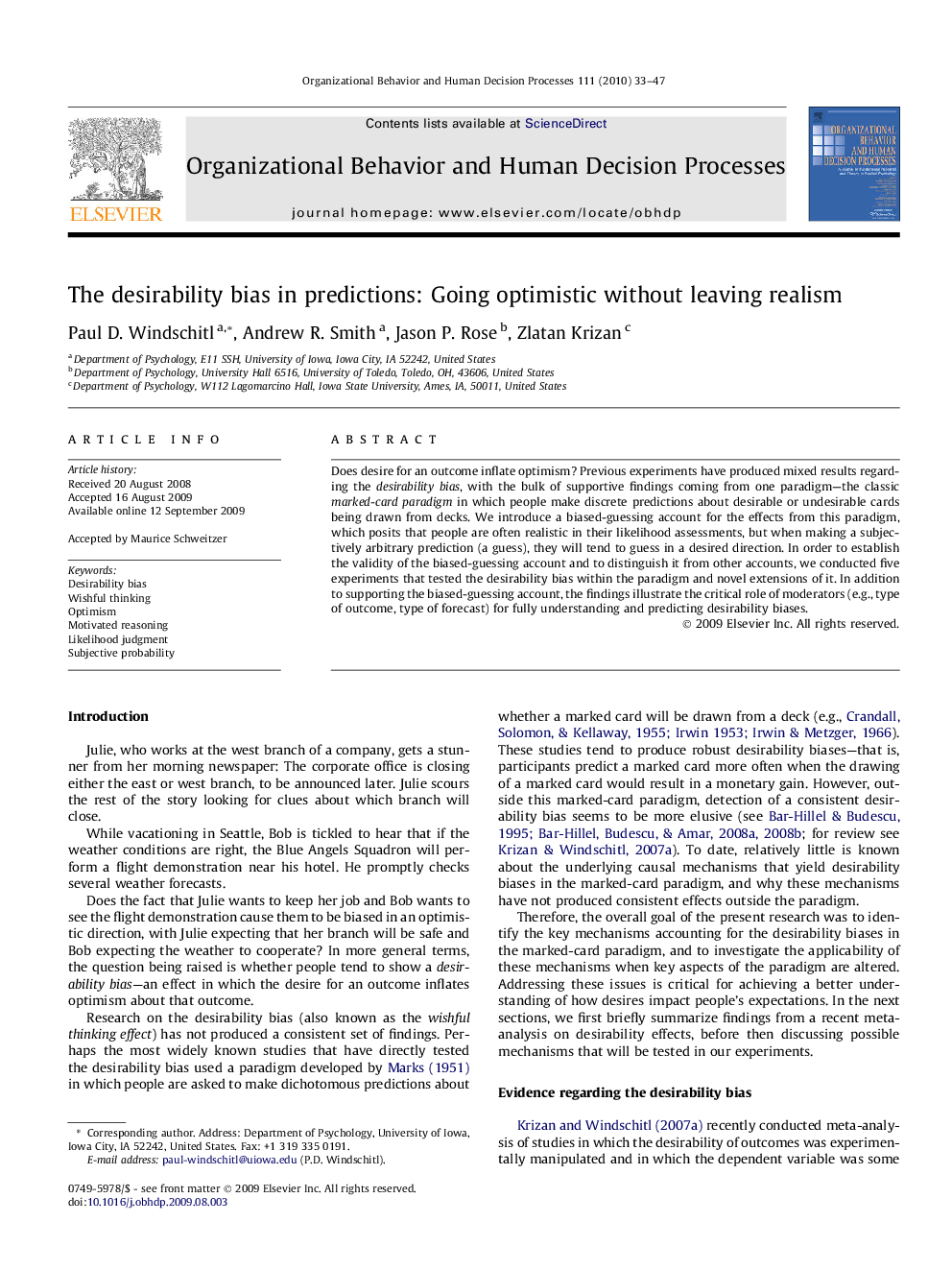| Article ID | Journal | Published Year | Pages | File Type |
|---|---|---|---|---|
| 888856 | Organizational Behavior and Human Decision Processes | 2010 | 15 Pages |
Does desire for an outcome inflate optimism? Previous experiments have produced mixed results regarding the desirability bias, with the bulk of supportive findings coming from one paradigm—the classic marked-card paradigm in which people make discrete predictions about desirable or undesirable cards being drawn from decks. We introduce a biased-guessing account for the effects from this paradigm, which posits that people are often realistic in their likelihood assessments, but when making a subjectively arbitrary prediction (a guess), they will tend to guess in a desired direction. In order to establish the validity of the biased-guessing account and to distinguish it from other accounts, we conducted five experiments that tested the desirability bias within the paradigm and novel extensions of it. In addition to supporting the biased-guessing account, the findings illustrate the critical role of moderators (e.g., type of outcome, type of forecast) for fully understanding and predicting desirability biases.
